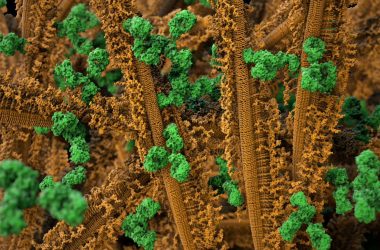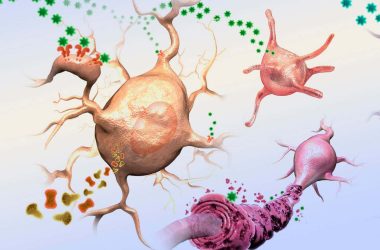The machine was implanted into the thalamus (highlighted), a area deep within the mind that’s linked to alertness, studying and reminiscence
SEBASTIAN KAULITZKI/SCIENCE PHOTO LIBRARY/Getty Pictures
An implant that stimulates a area deep within the mind could enhance cognitive perform in individuals with traumatic mind accidents lengthy after the incident occurred. That is primarily based on the outcomes of a small examine, which was primarily carried out to evaluate the machine’s security, with additional analysis required.
A significant blow to the pinnacle, resulting from a automotive crash, for instance, may end up in a traumatic mind harm (TBI). In delicate instances, this will likely quickly have an effect on somebody’s mind cells, however in additional extreme incidents, the person can have long-term emotional, bodily, cognitive and behavioural impairments.
“One of many main issues is that there actually aren’t any efficient therapies for traumatic mind harm,” says Jaimie Henderson at Stanford College in California.
In an try and fight this, Henderson and his colleagues developed an implant that might stimulate the thalamus – a area deep within the mind that’s linked to alertness, studying and reminiscence – to see if this might revive cognitive capabilities in these with TBI.
“You possibly can consider it nearly like a pacemaker,” says Henderson. “The machine is implanted within the mind and delivers electrical pulses to electrodes which can be positioned on particular elements of the mind.”
To check the machine, the group recruited six individuals between the ages of twenty-two and 60 who had a reasonable to extreme TBI from an incident that occurred between three and 18 years in the past. All of them had ongoing cognitive impairment, comparable to poor reminiscence or lack of attentiveness.
Earlier than implantation, the members took a neurological evaluation known as a path making check that entails connecting a set of 25 dots as shortly as attainable to measure psychological velocity, processing and adaptability.
The group then surgically inserted the machine into every of the members’ brains. The implants have been programmed to stimulate the mind for 12 hours a day, throughout typical waking hours, and have been switched off at evening.
One yr later, the group assessed 5 of the members through the path making check once more. The sixth participant dropped out of the trial after growing a scalp an infection from the surgical procedure, which they recovered from. No different critical unwanted effects occurred.
All 5 members had check scores that have been between 15 and 52 per cent greater in contrast with their pre-implant outcomes. “I feel that was our greatest shock: the scale of the development,” says group member Nicholas Schiff at Cornell College in New York.
The trial was small and designed to primarily reveal the machine’s security, says Henderson. By way of the scalp an infection, Henderson says that such problems are all the time a threat with surgical procedures. “On stability, I feel we will present profit for individuals who haven’t any different therapy choices,” he says.
The group plans to hold out a bigger examine to additional assess the implant’s security and efficacy, says Henderson. “Deep mind stimulation might assist thousands and thousands of people who find themselves struggling, usually in silence, from the consequences of traumatic mind harm,” he says.
Matters:












